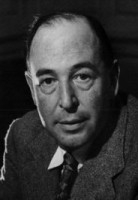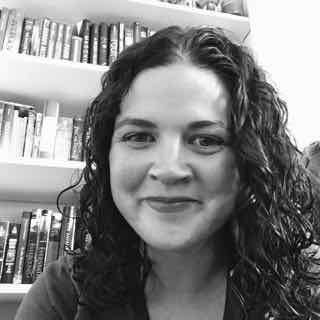
A Preface to Paradise Lost
by C.S. Lewis
Published: 1961
Genres: Non-fiction
Format: Paperback (160 pages)
Source: Purchased
An interpretation of Milton's purpose in writing the epic from the Ballard Matthews Lectures Delivered at University College, North Wales in 1941.
If you have, like me, tried to read Paradise Lost but couldn’t finish it, then this book is a great resource to help you get through it. I learned a lot from this book. Literally on page one C.S. Lewis talks about how people misread narrative poetry (like Paradise Lost) all the time because used bookstores are full of books of narrative poetry whose first few pages are underlined in random places and the rest of the book is blank. This made me laugh because that’s EXACTLY what my copy of Paradise Lost looks like. C.S Lewis points out that you can’t read it like lyrics looking for little nuggets of good lines. That’s what I did the first time and I quit reading Paradise Lost after 20 pages.
Stuff I learned from this Preface in case you don’t really want to read it:
- The form of poetry is important and the rules add to it’s beauty, not take away from it.
- Epic poetry comes from the court so it is meant to be oral. (Good to know – I will try to read it like a speaker instead of a drone voice in my head). Since its traditionally oral, there is a lot of repetition because if you have to think too much while you are listening to a poem you can get lost very easily.
- Epic poetry tends to be about men, historically true and tragic.
- The beauty of the poetry is in the paragraph or the whole. Looking for good lines is like looking for good stones in a cathedral.
- The language is repetitive but not commonplace, like having pumpkin pie every year for Christmas. This also makes it feel ceremonial.
- Everything we need to know is in the poem itself. Another reason I got stuck in Paradise Lost was the massive amount of details. I was delighted when C.S. Lewis said that we don’t need to look up all the places in the notes. The feeling that Milton is trying to achieve is the important part. Yay for that.
- Milton purposefully made it feel like you are listening to a never ending voice go on and on. There aren’t many stopping points in the poem.
- One of the techniques that Lewis suggests in reading Paradise Lost is to immerse yourself in the poem and feel like you are living it yourself instead of trying to strip away all the “exterior stuff.”
- The idea of hierarchy is seen a lot in Paradise Lost. Everything has a superior (except God) and an inferior.
Then Lewis talks a lot about heresy and whether or not it’s there in Paradise Lost (which I didn’t much care about).
So there you have it. I feel properly prepared to read Paradise Lost and actually finish it this time.
Content Rating: None








 My name is Jessica. I love to read Young Adult and classic literature. I’ve been a book blogger for six years and I haven’t gotten tired of it yet. I’m a very curious reader. Writing about all the questions and thoughts I had while reading a book is the best hobby ever.
My name is Jessica. I love to read Young Adult and classic literature. I’ve been a book blogger for six years and I haven’t gotten tired of it yet. I’m a very curious reader. Writing about all the questions and thoughts I had while reading a book is the best hobby ever.
Great review and I’ll definitely be checking this out before I ever read “Paradise Lost” by C.S. Lewis. Thanks for such a great resource!!!